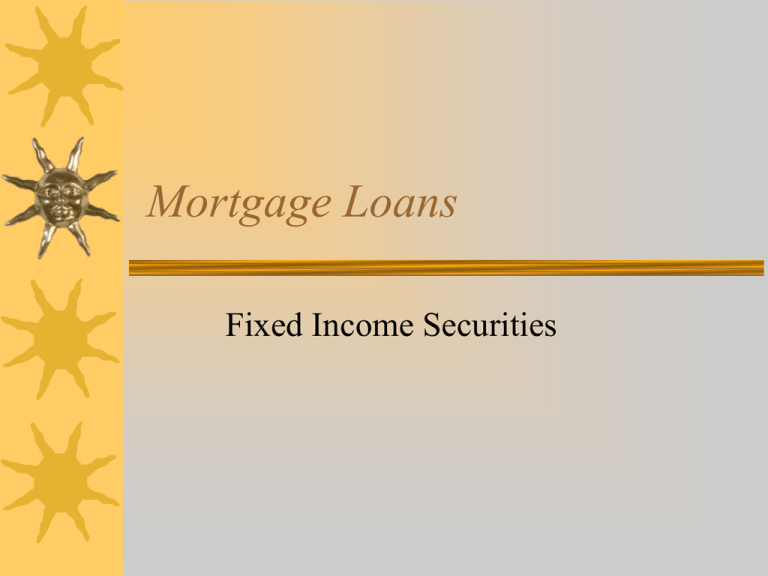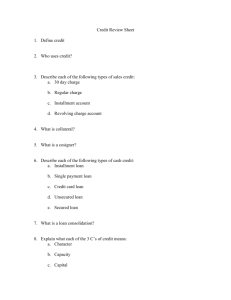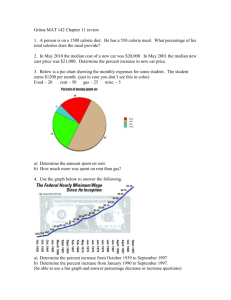Mortgage Loans
advertisement

Mortgage Loans Fixed Income Securities Outline What is a mortgage? Major Originators Alternative Mortgage Instruments Prepayments and their impacts on cash flows Risks of investing in mortgages Factors that affect default on mortgage loans What is a Mortgage? A loan that is secured by the collateral of specified real estate property, which obliges the borrower to make a predetermined series of payments. In the event of default by the borrower, the lender can sell off the property General Features of a Mortgage Loan Loan is based on the credit of the borrower and the collateral for the mortgage—Conventional Mortgage Mortgage Insurance Usually, amount of loan less than the market value of the property Classified as one to four family homes (residential property) and income property (office space and apartment buildings) Loan originators include: thrifts, mortgage companies, and commercial banks for income property Loan originators for income property include commercial banks, thrifts, and insurance companies Usually, mortgage companies sell most of their mortgages in the secondary market Two primary factors that determine whether loan should be extended or not: – The payment to income ratio – The loan to total value ratio Alternative Mortgage Instruments Standard Fixed-rate mortgage – A borrower would take out a mortgage loan for a principal amount P and repay in equal monthly installments of M Adjustable Rate Mortgage – A loan in which the contract rate is reset periodically in accordance with some pre-chosen reference rate, typically one based on short-term interest rate. Graduated Payment Mortgage Growing Equity Mortgage Fixed-Rate Mortgage and Interest Rate Risk A rising term-structure can create a gap in the balance sheet of the lending institution ARM and Default Risk If reference rate rises too much, risk of default rises Risks in Mortgage Loan Market Default Risk – Loan to value ratio – Second mortgages behind first mortgage – Seasoning Effect Liquidity Risk Interest Rate Risk Prepayment Risk






